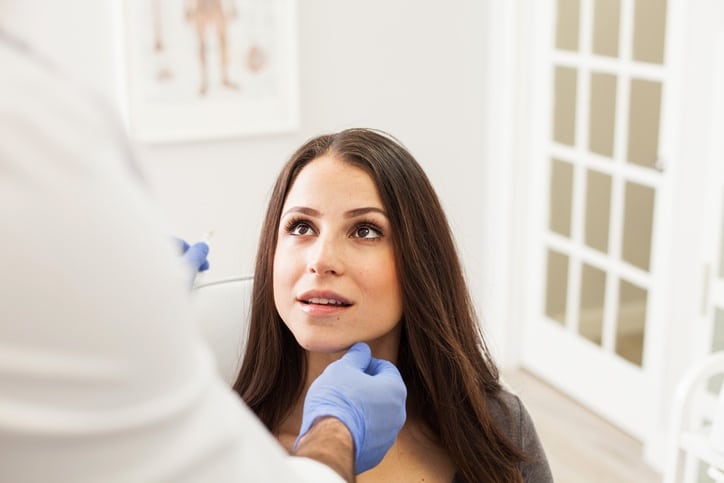You have acne — many people do. You’ve tried countless acne lotions and face washes, but nothing seems to get rid of your face blemishes. Perhaps you’ve avoided seeing a dermatologist because you figured it would clear up on its own or you’d find something that would work to get rid of your acne. Now, you’re thinking that it’s time to seek help from a dermatologist.
What Is Acne?
Acne is a type of skin condition that develops when dead skin cells and oil clog your hair follicles. The condition usually causes blackheads, whiteheads and pimples and generally appears on your forehead, face, shoulders, chest and upper back. It’s a common condition in teens, but it can affect anyone of any age. In fact, adults make up 20 percent of all acne cases.
Causes of Acne
Acne can get worse due to many physical, emotional and environmental factors, which include:
- Stress and anxiety
- Oil-based cosmetics
- Exposure to dirt or humidity
- Physically irritating clothing like hats, headbands and helmets
- Hormonal changes or premenstrual changes
- Certain medications like lithium, phenytoin, rifampin, phenobarbital and steroids
There are other causes, but these are the most common.
Why It’s Important to See a Dermatologist
Knowing when to see a dermatologist can be difficult. When acne appears, some people chalk it up to stress and don’t think they need to see a dermatologist. Others may think their acne isn’t severe enough to warrant a visit to a specialist. However, seeing a dermatologist can benefit you, even for mild acne.
A few reasons for seeing a dermatologist include:
- To reduce scars. Early treatment can prevent scarring from acne. Generally, the more serious your acne, the more chance there is of scarring. Even mild acne can leave scars if picked.
- Treatment that provides fast results. Whether you have mild or severe acne, treatment takes time to work. But treatment does take less time to get rid of a few pimples compared to numerous whiteheads, blackheads and deep-rooted acne cysts.
- To prevent severe acne. By receiving treatment early, you’ll prevent your acne from progressing into a more serious problem.
If you’re not sure which treatment is good for your acne (or your teen’s), it is helpful to see a dermatologist who can examine the acne and recommend an effective treatment. If you’ve already tried a nonprescription strength acne product for a few weeks with no results, your dermatologist will likely recommend a prescription-strength medication such as Accutane.
Accutane (isotretinoin) is a strong medication for treating acne. It takes around four to five months of treatment with Accutane before your acne clears up, but it is potent enough to clear up any acne — even severe cases.
You should use Accutane for severe acne that causes scarring. It does have some side effects such as:
- Dizziness, drowsiness or nervousness
- Back or joint pain
- Peeling or cracking skin
- Itching or rash
- Dryness of your nose, mouth or skin
Despite these side effects, it’s still considered a safer alternative to using antibiotics long term. More than two million individuals have taken this medication, and its effectiveness and safety is well-known.
It’s essential to follow the instructions of any treatment your dermatologist recommends or prescribes for it to be effective, particularly since it could take a few weeks before you’ll see any signs of improvement.
If you have acne, contact Rodgers Dermatology in Frisco (TX) at 972-704-2400 to get on the road to clearer-looking skin. Take advantage of our online appointments so that Dr. Timothy Rodgers, MD, FAAD can diagnose your acne and other skin conditions and provide you with any needed prescriptions, which you can pick up your local pharmacy.

